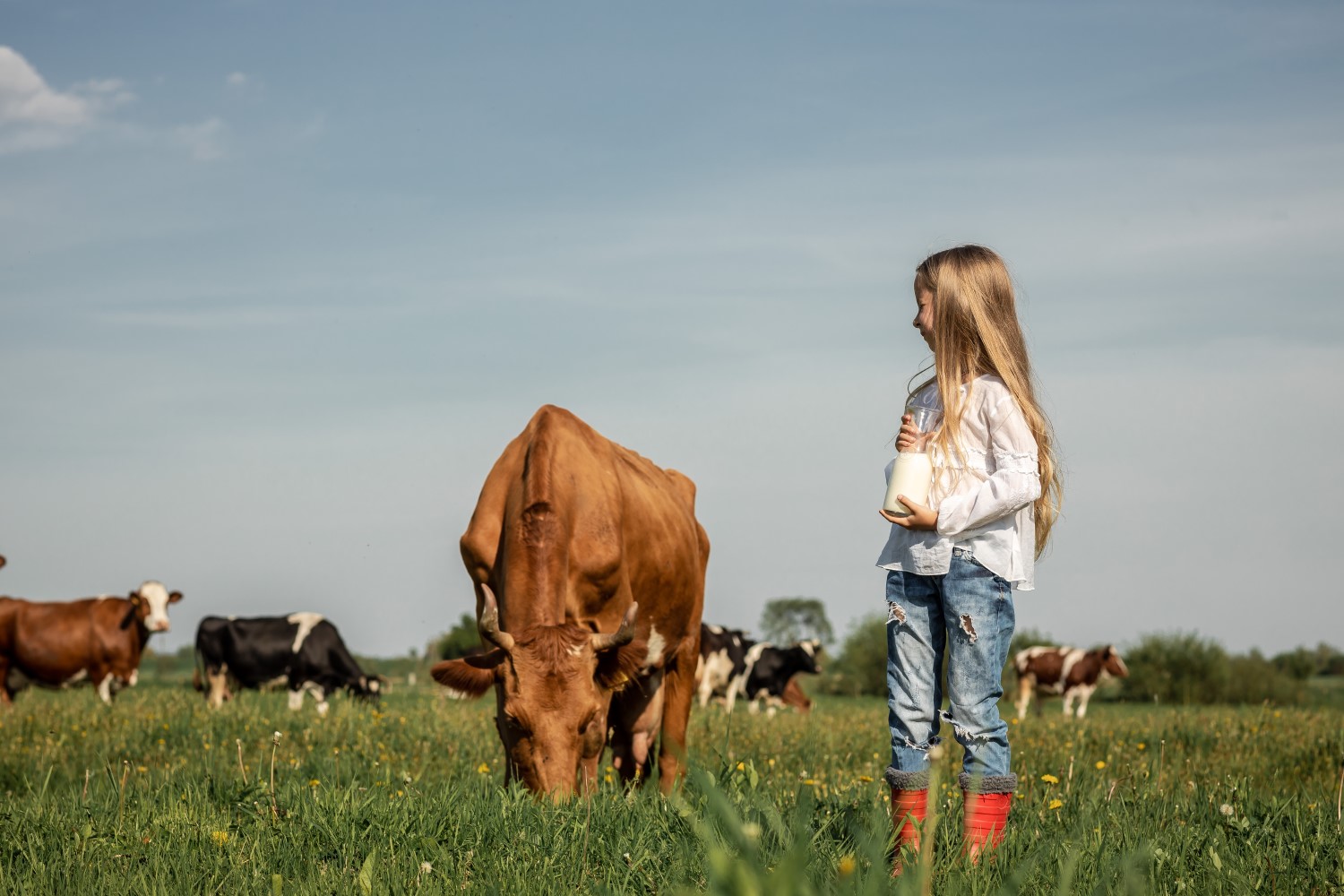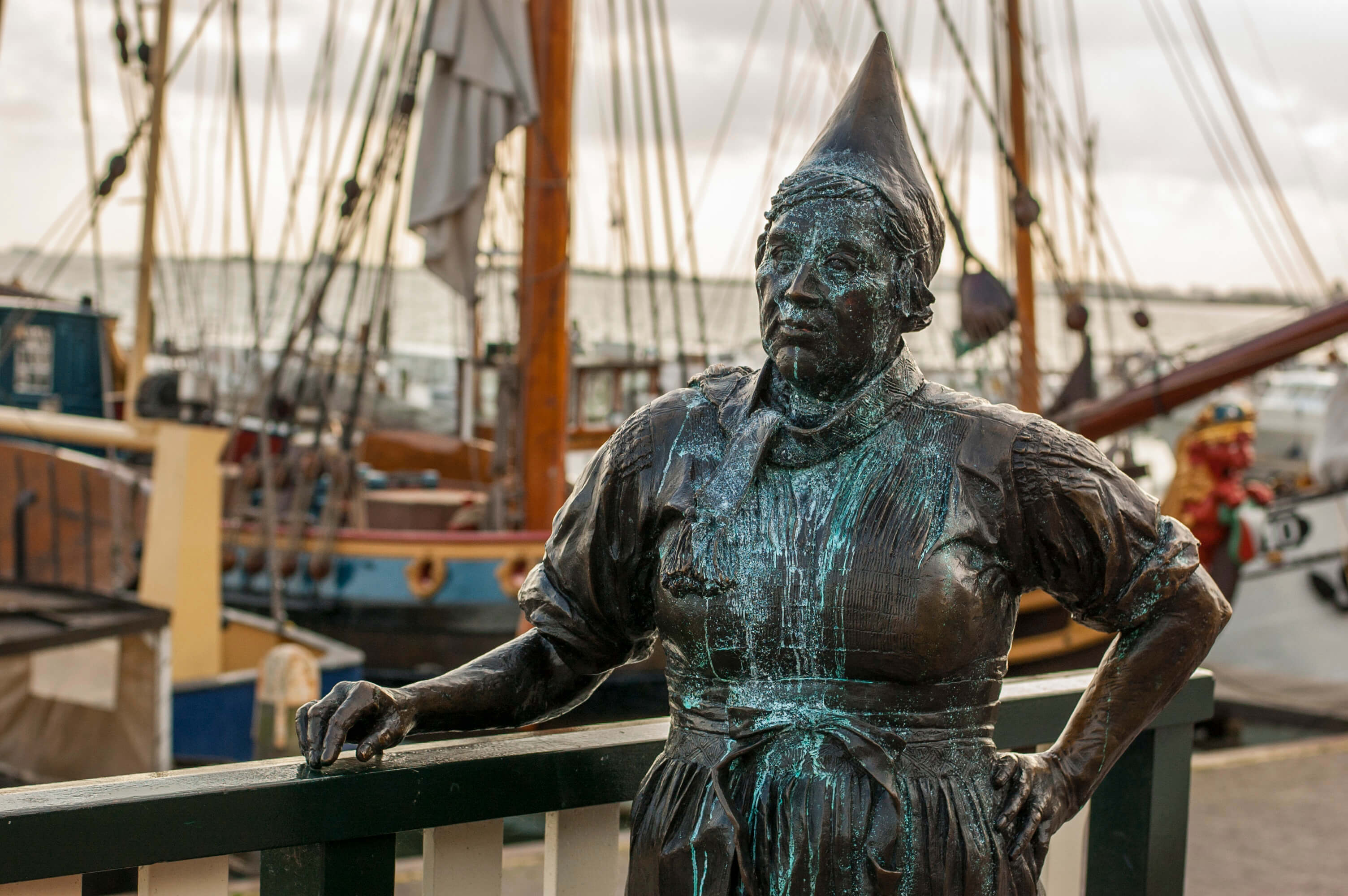
Longread
Food transition causes great uncertainty for farmers and fishers
The food transition is putting a lot of pressure on agriculture and the fishing industry to change the way they work. Two Wageningen scientists have investigated the impact of those changes on farmers, fishers and their communities. “The social aspect of this story hasn’t really been told before now.”
Wageningen University & Research is researching and lending support to the transition to more sustainable food systems. Its scientists are analysing how agriculture and the fishing industry affect climate and biodiversity. They’re developing technological and systemic solutions to ensure a more sustainable future. They’re also performing economic analyses, because sustainable food production has to be financially viable. All these studies are providing policymakers with information on how the food transition could be achieved in practice.
2023 saw the publication of two studies by Wageningen researchers into an often overlooked aspect of the food transition: the social aspect. Public administration expert Rosalie van Dam examined the social and psychological impacts experienced by farmers now that they’re under pressure from the government to switch to other forms of agriculture. Anthropologist Marloes Kraan researched the impact of policy changes on the Dutch fishing industry, specifically in terms of social and cultural issues. For example, in what way does policy have an impact on the identity and social well-being of fishers?
A palette of social impact
“Very little is known about the social impact of the transition policy on farmers’ lives,” says Van Dam. “That’s why we started with an exploratory study. We examined the types of impacts experienced by farmers and farming communities. We call that the palette of social impact.”
If the concerns, fears and insecurity are taken into account when developing policy, this could lead to increased support
Van Dam distinguishes between five categories: existential, psychological, behavioural, spatial and process-related impacts. The study therefore covers many different types of experiences. “On the one hand, people feel uncertain about their identity as farmers or they’re experiencing mental health symptoms such as anxiety and fear – some even felt suicidal. On the other hand, changes are occurring on farms and to the work that farmers do, while some farmers don’t actually feel sure what sort of changes they’re supposed to make.” The process of transition itself is also a factor for farmers. They perceive the policy as complex and unclear, although there are also farmers who consider it necessary and a source of optimism.
Policymakers can use the study to improve their awareness of the effects that policy change can have. “Policies could take better account of concerns, fears and uncertainties about implementation,” says Van Dam. “Doing so could create more support.”
Well-being and social cohesion
Kraan and her colleagues also researched another group that makes an important contribution to our food supply: the fishing industry. A lot of changes have come into force in recent years about where and how specific fishers are allowed to fish in the Netherlands and in Europe as a whole. In the wake of policies such as the North Sea Agreement, the ban on pulse fishing and Brexit, two motions were passed in the Dutch House of Representatives to examine the impact of these new policies on the fishing industry. This also encompassed looking at the value of the fishing industry. “Not only economically, but also socially,” Kraan stresses.
Because fishing boats often belong to family businesses, with mostly locals on board, the transition is something that affects entire communities
“You were able to work on a larger scale than we were,” notes Van Dam. For the research into farmer well-being, the scientists conducted eight in-depth interviews with ten stakeholders with an understanding of the farming sector, such as an agricultural lawyer and a vicar who provides pastoral support to farmers. Kraan and her colleagues conducted a survey, interviews, and nine regional meetings. “The meetings were an opportunity for us to meet a wide range of people from the sector,” explains Kraan. “For the scientists, this was a chance to present the research, while participants were able to share their experiences.”

“These talks made it very clear that the fishing industry doesn’t merely provide jobs and income: it’s also important for the identity, well-being and social cohesion of fishers,” says Kraan. “In fact, because fishing boats often belong to family businesses, with mostly locals on board, the transition is something that affects entire communities.”
There’s more at stake
Kraan has data on this: 75% of the fishing industry is made up of family businesses. In total, there are 1,779 crew, but another 12,500 people work in other parts of the supply chain, such as at fish auctions. “The survey and interviews showed that, for fishers and their partners, fishing is inextricably linked with their quality of life,” says Kraan. “At the same time, only 4% of skippers with their own boats are confident that their business will still be around in five years’ time. In 2008, that figure still stood at 40%. Uncertainty is pervasive in the fishing industry.”
- Unfortunately, your cookie settings do not allow videos to be displayed. - check your settings
“Moreover, it’s not just about a loss of income or about changes to communities. There’s more at stake. Fishing is also part of the history and culture of the Netherlands, and I don't want to overlook the experiential knowledge of fishers either. They have a unique knowledge of the natural world, of the environment in which they work.” That repository of knowledge among fishers in the Netherlands often feeds into scientific research. A count of those contributions in 2012 found that 153 ships participated in 43 different research projects.”
Real and tangible uncertainty
“We’ve encountered a lot of uncertainty among farmers, too,” Van Dam adds. “It’s difficult to find a way of incorporating those experiences. The idea that people don’t know where they stand is in fact becoming a political battle cry.” Kraan nods. “That's right. As a social researcher, you really have to remain cognisant of those interests. I’d actually really like to do ethnographic research, and immerse myself in all these groups as an anthropologist for a while, to properly observe the relationships between fishers and government officials.”
Transitions are social. People must make the transition, in their thinking and in their actions
Kraan points to an issue in the shrimp fishing industry as an example of the uncertainty that fishers are dealing with. “Right now, fishers are being asked to invest in a new engine to comply with nitrogen rules. Meanwhile, the other conditions for obtaining a licence are still up in the air. So the fishers might make that investment – amounting to tens of thousands of euros – without knowing for sure whether they’re allowed to fish or not. But they do need to decide right now whether or not to invest. Surely that’s a very real and tangible example of uncertainty.”
Transitions are about people
The regional meetings organised by Kraan and her colleagues took place shortly after the pandemic. “People hadn’t been able to discuss policy with anyone for two years. That really jumped out at us,” says Kraan. “There was so much to say, they couldn’t contain themselves. They were extremely engaged.” “Resistance is also a form of engagement,” adds Van Dam. “Farmers really feel misunderstood and dislocated. If you listen carefully to their situations, it turns out they’re far more open to change than you might think. Acknowledgement and recognition are crucial.”

“Transitions are social,” Van Dam continues. “People have to make the transition, both in the way they think and act. People need to start eating differently and living differently – and yes, we also need to produce food differently. This is why social research is so important. Innovative technology and smart policies will only get you so far – you have to get people on board. Organising change is actually a social challenge.” That’s why Van Dam is pleased that social scientists are increasingly participating in major projects.
Specific skills
The studies carried out by Kraan and Van Dam may therefore just be the beginning of more social research into the food transition. Van Dam suggests that we still know too little about the role and competencies of officials working with farmers and fishers. “You need very specific skills if you want to really listen, make people feel heard, and make their experiences an integral part of the process. I’d like to know more about how officials handle that at the moment, and their own perception of those tasks.” More than anything, Kraan wants to collect a lot more data. “We collect all kinds of data on ecological and economic impacts, so why not on social impacts?”